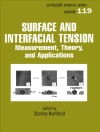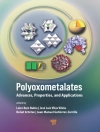Supramolecular materials have a great number of applications due to the reversibility of their non-covalent molecular interactions, such as reversible hydrogen bonding, host–guest interactions and electrostatic interactions. This book provides a comprehensive source of information on the structure and function of organic and metal–organic supramolecular materials.
The chapters of this book provide an overview of supramolecular material assembly at various scales, including the formation of 2D polymers and molecular cages. The role of intermolecular interactions in solid and solution state self-assembly is discussed, as is the role of mechanochemistry on molecular and supramolecular architectures. Finally, novel applications of these materials in molecular recognition, catalysis, light harvesting and environmental remediation are covered.
Functional Supramolecular Materials will be of interest to graduate students and researchers in academia and industry in the fields of supramolecular chemistry and functional materials science.
Tabella dei contenuti
Surface Self-assembly of Functional Supramolecular Networks; Designing Soft Supramolecular Materials Using Intermolecular Interactions; Anion Binding in Tripodal Receptors and Supramolecular Capsular Dimeric Assemblies; Functional Molecular and Supramolecular Materials for Electron Transfer Reactions and their Applications; Influence of Supramolecular Interactions on the Solid-state Photoreactivity of Metal Complexes; Metal-Organic Frameworks with Tunable Electrical and Optical Properties; Conducting Framework Materials; Functional Metal-organic Frameworks for Enzyme/Protein Immobilization; Porous Metal Organic Polygons and Polyhedra – Intrinsic vs. Extrinsic Porosity; Functional Metallo-supramolecular Polyhedral Capsules and Cages; Designing Functional Porous Organic Frameworks for Gas Storage and Separation; Gated and Stepwise Sorption Processes in Functional Metal-organic Frameworks
Circa l’autore
Rahul Banerjee received his Ph D degree from University of Hyderabad, Hyderabad in 2006 under the supervision of Prof. Gautam R. Desiraju. After postdoctoral work at UCLA with Prof. Omar M. Yaghi (2006-2008), he joined the National Chemical Laboratory, Pune, India in 2008 as a Scientist. His research interests include the study of structural chemistry with chemical synthesis to design new materials for hydrogen storage and carbon sequestration. Additionally, his group is also engaged in design and synthesis of lightweight materials for storage, capture and proton conduction. Dr Banerjee is an Editorial board member and associate editor of Cryst Eng Comm. He has also served as a co-editor of Acta Crystallographica Section E in 2011-2012. Dr Banerjee has been invited to become a Fellow of the Royal Society of Chemistry in 2013 in recognition of his significant contribution to Chemical Science and, in particular, to his work on the board of Cryst Eng Comm.












